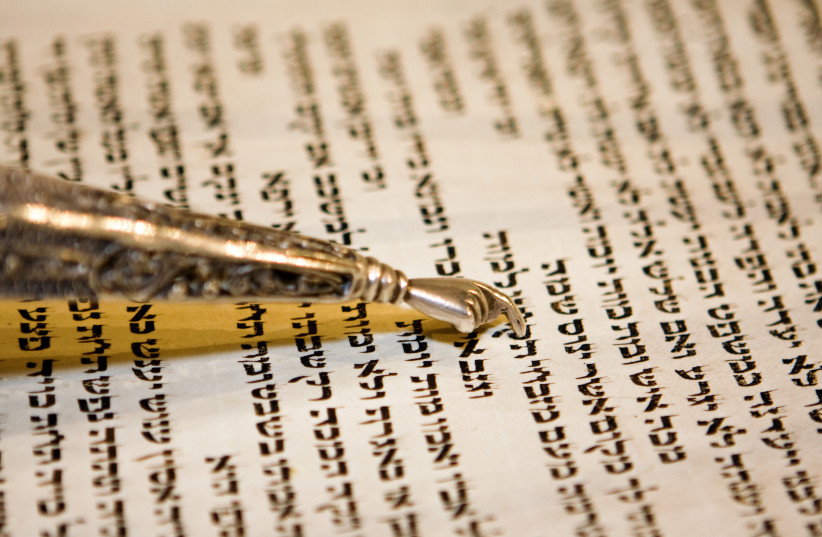This Shabbat, the first after Simhat Torah, we will begin again with the annual cycle of reading the Torah. The first Torah portion, Bereshit, brings us back to the foundations of human conception: the creation of the world, the relationship between humans and God, humans and nature, and man and woman, sin, guilt and punishment, human suffering, the complex relationships between siblings, and more.
Let’s delve into the relationship between the first brothers – Cain and Abel. Their short story is constructed in a tight structure and deals with Adam and Eve’s oldest son, Cain, and his younger brother, Abel.
The story begins with the brothers’ occupations. “...and Abel was a shepherd of flocks, and Cain was a tiller of the soil.” One was a shepherd wandering with his flock, and the other was a farmer rooted in his land and growing food. And here the story gets complicated. Cain decides to bring an offering to God from the fruit of the land, but God does not accept it.
After him, Abel brings a choice offering from his herd, and God willingly accepts it. Cain, of course, was sad and angry. God consoled him and taught him that acceptance of the offering was contingent on improving one’s acts. “Is it not so that if you improve, it will be forgiven you? If you do not improve, however, at the entrance, sin is lying...”
Here’s where the complication reaches its peak: “And Cain spoke to Abel his brother, and it came to pass when they were in the field, that Cain rose up against Abel his brother and slew him.” What does Cain say to Abel? The Torah doesn’t tell us.

But it doesn’t matter what the argument was about, since every argument, as bitter and serious as it may be, is not reason enough for murder. After the murder, we wonder how the story continues. What more could happen? And then there’s a twist in the tale. God shows up and turns to Cain with a question: “Where is Abel your brother?” But Cain, pretending to be innocent, answers: “I do not know. Am I my brother’s keeper?”
“I do not know. Am I my brother’s keeper?”
Cain
God does not accept Cain’s answer and rebukes him: “What have you done? Hark! Your brother’s blood cries out to Me from the earth.” We, readers beginning to read the Torah, discover that there is someone who hears the muted cry of the murdered. God is not indifferent to what happens. A person can choose evil, but the cry that emanates from the iniquity does not reverberate in an empty space.
Cain’s punishment comes quickly. “And now, you are cursed even more than the ground… it will not continue to give its strength to you; you shall be a wanderer and an exile in the land.” Cain, who works the land, was punished with infinite wandering. And here the story ends with the characters dispersed. “And Cain went forth from before the Lord, and he dwelt in the land of the wanderers...” Cain leaves for distant lands to the east and becomes a nomad.
Cain and Abel: A continuation of the story of the Garden of Eden
Israeli philosopher Yoram Hazony turns our attention to the fact that this story is a continuation of the previous one, the sin of eating from the tree of knowledge in the Garden of Eden despite God’s prohibition. At the end of that story, God punishes Adam with the following words, “...cursed be the ground for your sake; with toil shall you eat of it all the days of your life.” And after that, “And the Lord God sent him out of the Garden of Eden, to till the soil.” Man is sent to work the land, and that is precisely what Cain did. “Cain was a tiller of the soil.”
Cain seems like he was a very religious man. He accepts the punishment and goes to work the land. Later, he also brings God an offering. But Cain is the prototype of a person who does not take responsibility for his actions and looks despairingly toward the cosmic, supreme, divine. Abel, on the other hand, embarks on a new road. He finds a way to avoid the curse. He abandons working the land and turns to shepherding. He takes responsibility for his life and tries to release himself from dependency. And sure enough, God does not accept Cain’s offering. But that of his younger, somewhat rebellious brother, He does accept.
Cain might seem to us to be the ideal religious person, but this is not what the Torah asks of us. The Torah’s typical religious person is one who takes responsibility and tries to advance to a better situation. The ideal person that the Torah presents is one who tries to be similar to God: to build, to initiate, to move things forward with faith in creation and the Creator; as God teaches Cain, “Is it not so that if you improve, it will be forgiven you?”
The entire Book of Genesis is dedicated to stories of non-conformists, people who courageously followed their conscience and strove to move forward. Abel was the first person to stop working the land and turn to shepherding.
Abraham, our patriarch, left his family for the unknown. Joseph dreamed dreams of monarchy. In this first parasha, the Torah is giving us a taste of the foundations of Jewish values, those that make demands of us and call to us not to be satisfied with what exists but to march forward with courage and faith. ■
The writer is rabbi of the Western Wall and Holy Sites.
